Well, they say that “Writing is a form of therapy” []. 150 years ago today the New York 1st Veteran Cavalry’s beloved Major Jerry Sullivan was killed by John Singleton Mosby’s cavalry unit; later that very day the New York Cavalry’s SENECA correspondent wrote home about the sad events.
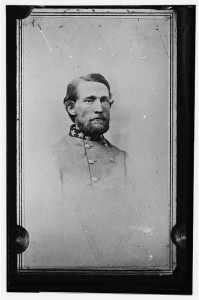
nemesis
From the First Veteran Cavalry.
CAMP SULLIVAN, March 10th, 1864
Near Harper’s Ferry, Va.
FRIEND STOWELL: – This has been a sad day in the camp of the Veterans. One of our bravest and most beloved officers has fallen. Major SULLIVAN, while gallantly leading a charge against a vastly superior force of the enemy, commanded by the notorious Moseby [sic], was shot through the body and died almost instantly.
A detachment of our regiment was out upon “picket” near Charlestown, under command of Major JERRY SULLIVAN, and at daybreak this morning Moseby, the Guerilla [sic] Chief, with one hundred and fifty of his men, surprised and captured one of the posts consisting of two Lieutenants and forty men from companies L and M. Major SULLIVAN who was at the main post, immediately mounted and with fifteen or twenty men rushed to the rescue, sending into camp for aid. Mosby at once fell back up the valley, closely pursued by our gallant Major, who overtook the rebels at a small place called Cabletown. Here the guerillas to the number of eighty made a stand, sheltered by the houses of the town. Nothing dounted, [daunted?] and thinking his reinforcements close at hand, the brave Sullivan, with Lieut. Baker of Company G, and nine valiant comrades, amid a storm of bullets, dashed in upon Moseby and his men. The conflict was short and desperate, most of the prisoners were retaken, but before aid could arrive the gallant major and three of his men were killed, Lieut. Baker and two othe[rs] severely if not mortally wounded. In a few moments our squadrons came pouring down the road, but, alas, all to [sic] late, for Sullivan was dead, and Moseby off again. – We chased the flying enemy until he crossed tne Shenandoah, and took refuge among the fastnesses of the Blue Ridge, and then returning with sad hearts escorted the remains of our beloved officer into camp.
To-morrow the body is to be embalmed and sent to Rochester, the officers of the Regiment already raised $250 dollars to defray expenses.
These guerrillas show but little mercy to our men. One poor fellow was shot dead by them as he lay wounded on the ground vainly begging for his like, and another only escaped being murdered, after he surrendered, because the pistol which was leveled at him missed fire. The villains robbed the bodies of all who fell, even tearing off Major Sullivan’s watch while he was dying on the road, and with a revolver at Lieut. Baker’s head forced him to give up whatever valuable he had as he lay beside his expiring commander.
Woe be to these miscreants if they ever fall into our hands. Over the dead bodies of their murdered comrades, the Veterans have sworn never to take another prisoner from Moseby’s command.
We now have lost five commissioned officers and about fifty men from our Regiment. The first who fell was Capt. W.L. Morgan, of Co. A, who was killed by one of Moseby’s men while scouting in the Loudon Valley about two weeks since. The next day his body was found, and excepting a little of his under clothing completely stripped. Twelve others of of companies A and F were lost at the same time. Co. D lost twenty men a few days afterward in a skirmish in Snicker’s Gap, and to-day major Sullivan is killed, Lieut. Baker of Co. G, wounded. Lieut. Brandt, Co. L., and Lieut. Herrick, Co. M, sent on to Richmond, and over twenty of their respective companies killed, wounded or missing. So we go. Thus far, Co. K has escaped – not a man lost yet, but our time may soon come.
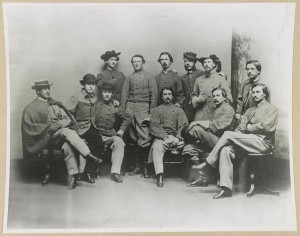
Mosby and some of his men
But you must not think the game is all on one side, for during the same two weeks we have done some pretty severe work. Riding up and down the valley of the Shenandoah again and again, and becoming well acquainted with the numerous cross roads and bye-paths with which this country is filled, fording the river, dashing through the passes of the Blue Ride [Ridge], scouting up the Loudon Valley, and having now and then a “right smart skirmish,” and keeping our account of killed, wounded and prisoners at least about square with the enemy. Of this Co. K, has done its share, I assure you, having already captured a number of Guerrillas, brought in about twenty C.S. Horses minus their riders, and “confiscated” sheep, pigs, turkeys, ducks and chickens without number, until we are now known as “Krewel K.”
Major General Sigel who has been assigned to this Department, has arrived and assumed command.
A deserter from Gilmore’s band has just come in and reports that Gilmore is preparing to make a raid upon us. Let him come. We are prepare [sic] to give him a warm reception. When he gives us a call I will tell you how he liked the entertainment.
K company goes out on picket to-night to take the place of L and M, “gobbled up” this morning. “Boots and saddles” has just been sounded so I must exchange my pen for my sword.
Yours ever,
SENECA.
You can read more about embalming at the civilwarundertaker.

dauntless major Sullivan

![[Abraham Lincoln] ([Cincinnati : Strobridge & Co.,] c1877 Oct. 12.; LOC: LC-DIG-ppmsca-19241)](https://www.bluegrayreview.com/wp-content/uploads/2014/03/19241r-247x300.jpg)
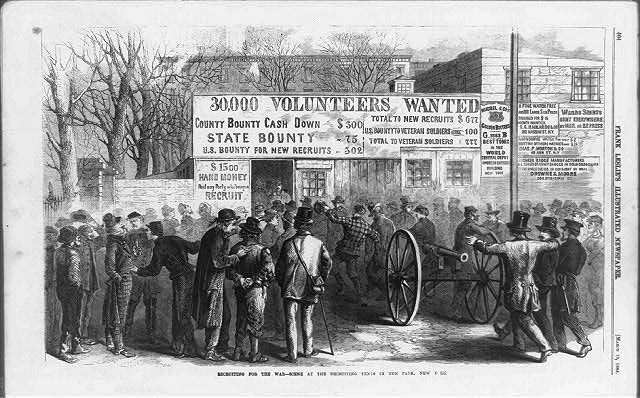
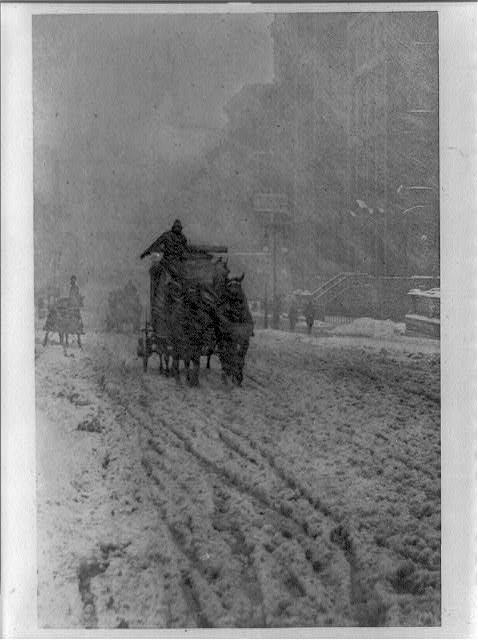
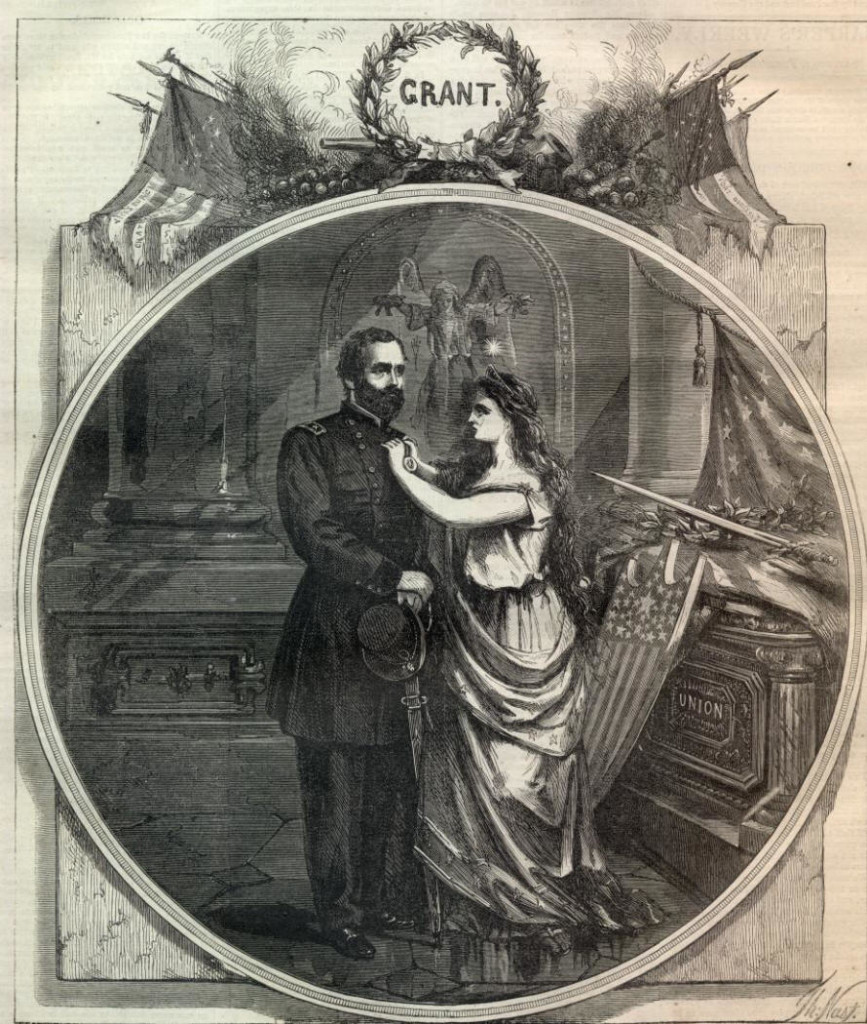



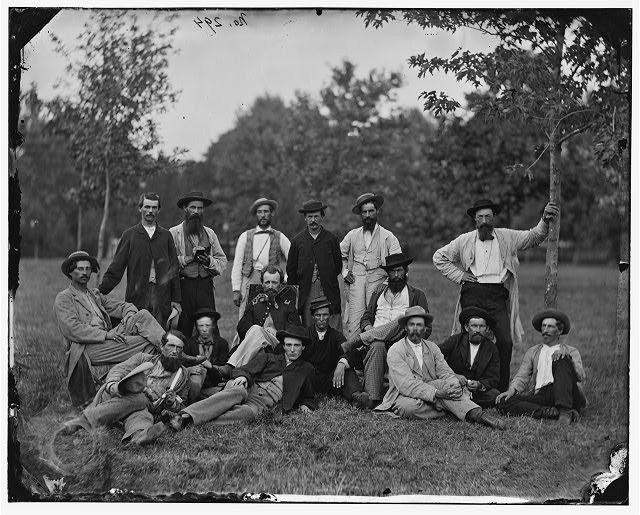
![[Powder monkey by gun of U.S.S. New Hampshire off Charleston, S.C.] (Between 1864 and 1865; LOC: LC-DIG-cwpb-03515)](https://www.bluegrayreview.com/wp-content/uploads/2014/03/03515r.jpg)